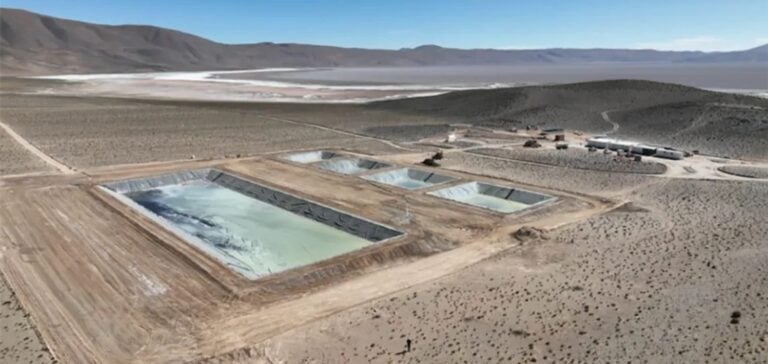The Anglo-Australian mining giant Rio Tinto has unveiled a massive $2.5 billion investment aimed at significantly developing lithium carbonate production in Argentina. This country, holding the world’s third-largest reserves of this strategic metal, is a key player in the sector.
Currently, the Rincón plant, located in the province of Salta, produces 3,000 tons annually. With this new investment, production capacity is expected to gradually increase to 60,000 tons by 2028, according to the company’s statement. Expansion work is scheduled to begin in 2025.
Lithium: A Pillar of Energy Storage
Lithium, often called “white gold,” is an essential resource for batteries used in energy storage. These batteries are at the heart of the energy transition, helping to stabilize power grids and integrate intermittent renewable energy sources, such as wind and solar. This pivotal role explains the steadily increasing global demand.
In 2023, Argentina was already the fourth-largest producer worldwide, forming part of the “lithium triangle” with Bolivia and Chile. This region could hold more than half of the world’s estimated reserves. With the expansion of projects like Rio Tinto’s, the region is positioning itself as a strategic supplier to meet this growing demand.
An Attractive Economic Framework
Rio Tinto’s CEO, Jakob Stausholm, praised the recent efforts of the Argentine government to attract foreign investments. Under President Javier Milei’s leadership, a new investment regime was approved, offering tax advantages and customs incentives for projects exceeding $200 million, guaranteed for a period of 30 years.
These reforms not only facilitate the influx of foreign capital but also strengthen Argentina’s position as a preferred destination for energy sector companies. Institutional support and economic stability are perceived as drivers of this rapid expansion.
Growth Prospects for Energy Storage
With the rise of electric vehicles and the expansion of renewable energy, the need for energy storage solutions is increasing exponentially. Lithium-ion batteries, thanks to their efficiency and energy density, dominate this market.
Rio Tinto’s investment aligns with this global trend. By increasing its production capacity, the Rincón project will enhance lithium supply, meeting the growing needs of battery manufacturers. This strategic project could also strengthen Rio Tinto’s position as a leader in critical materials for energy storage.





















